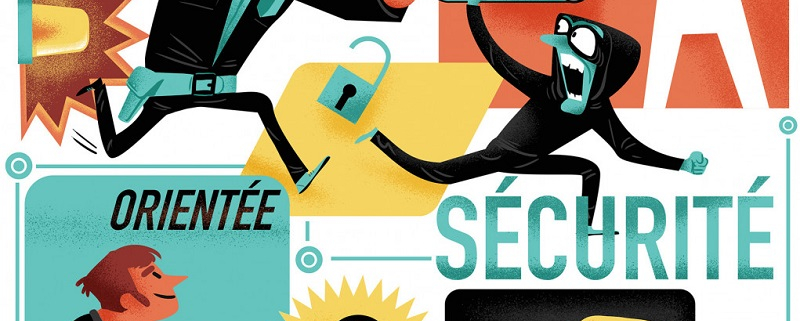Security coding for non-specialists, an educational innovation from Télécom SudParis
Télécom SudParis is offering practice-based, safety-oriented programming courses. This is a vital asset, even for those who do not intend to work in the field of cybersecurity.
“Cybersecurity is now a cross-cutting issue. It is no longer a matter just for specialists – it concerns all IT professions, from developers to system administrators,” explains Olivier Levillain, research professor in Information Systems Security at Télécom SudParis. In that respect, this former expert from ANSSI (French National Agency for the Security of Information Systems) has designed an optional introductory module on safety-related programming. “This module is aimed at second-year students with basic programming skills, in order to give them the reflexes and methodology to program as accurately as possible,” he explains.
The teaching unit is composed of roughly 30% theoretical teaching on development and 70% practice, split between practical work (for example, programming an image interpreter, debugging programs of varying lengths, etc.) and a final literature review project on a real case of a software flaw. The students are only graded on these practical parts, “which forces them to assimilate the theory more effectively,” points out Olivier Levillain. The practical classes are an opportunity for constructive dialog, and are followed up by individual written correction, but also by group analysis sessions designed to link the topic to more real and complex cases. “It is important to show the students that the problems they have solved open up to working realities,” the teacher emphasizes.
This practical aspect is very popular with the students – last year, a large majority of the evaluation feedback on the scheme rated it 5 out of 5, and only two rated it a 4. The success is such that the teacher is even considering expanding the proportion of practical work in the future, in line with the requests of some of the students. “The idea is also to reduce the number of 3-hour lectures as much as possible, in order to move towards a closer integration between theory and practice,” concludes Olivier Levillain.
This is an educational innovation project submitted for the 2021 IMT Teaching Awards.
Illustrator: Lionel Tarchala


















